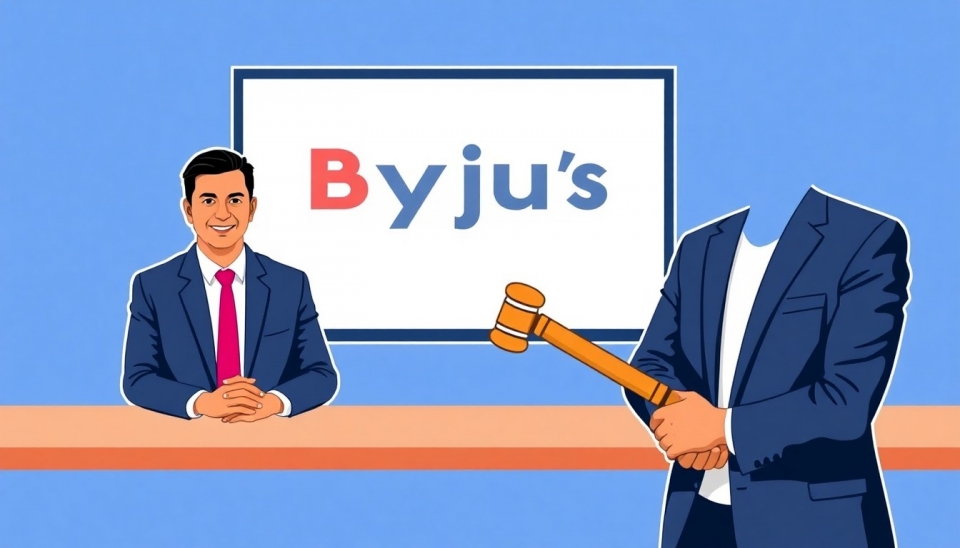
In a significant legal battle, Byju’s, the prominent Indian ed-tech company, is facing a lawsuit from its US lenders. The lawsuit targets the company's founder, Byju Raveendran, his wife, Divya Gokulnath, as well as key aide, T. M. Sreekanth. The legal action comes amidst mounting concerns regarding missing funds and financial discrepancies within the organization.
This development intensifies scrutiny over Byju’s financial practices, shedding light on its cash flow management and overall corporate governance. The lawsuit has been filed in a New York federal court, where the lenders are asserting that the founders and their associates diverted significant amounts of money away from its intended purposes. This claim involves allegations that funds meant for operational expenses were instead funneled into personal interests and ventures, raising serious questions about the integrity of the company's financial oversight.
The lawsuit arrives at a tumultuous time for Byju’s, which has been grappling with various financial hurdles amid a challenging market environment. Following a rapid expansion during the pandemic, the company has since encountered difficulties, including layoffs and a reduction in its workforce. These economic pressures have raised red flags among investors and lenders, emphasizing the need for transparency and accountability at the highest levels of the company.
In response to the lawsuit, Byju’s has maintained that it has acted lawfully and responsibly in all financial matters. The company contends that it is currently in discussions with its lenders to resolve any outstanding issues amicably. However, the ongoing legal allegations pose a significant threat to its reputation and could further complicate its efforts to secure additional funding in the future.
The fallout from this lawsuit not only puts the founders under intense legal scrutiny but also raises broader concerns about the future of the ed-tech industry, particularly in nations like India, where such enterprises have flourished. Investors are now questioning whether they can trust the financial practices of startups, particularly those in rapidly growing sectors that have previously been seen as recession-proof.
As the situation develops, all eyes will be on Byju’s as it navigates these troubled waters. The implications of this lawsuit will likely extend beyond legal consequences; they could reshape investor confidence in the company and the broader ed-tech market moving forward.
Experts suggest that this case underscores the importance of robust financial governance in rapidly growing firms, emphasizing that transparency and accountability should be at the forefront of every entrepreneurial venture. How Byju's responds to these allegations could set a precedent for similar companies in the industry.
In conclusion, the suit filed by US lenders against Byju Raveendran and his associates marks a pivotal moment for Byju's and could have wide-reaching impacts on how financial integrity is perceived within the ed-tech sector. As the legal process unfolds, it remains to be seen how the company will reconcile its obligations to stakeholders while restoring its reputation in the educational technology landscape.
#Byjus #EdTech #Lawsuit #Finance #Investors #CorporateGovernance #IndiaEdTech #StartupNews #ByjuRaveendran
Author: Emily Collins




